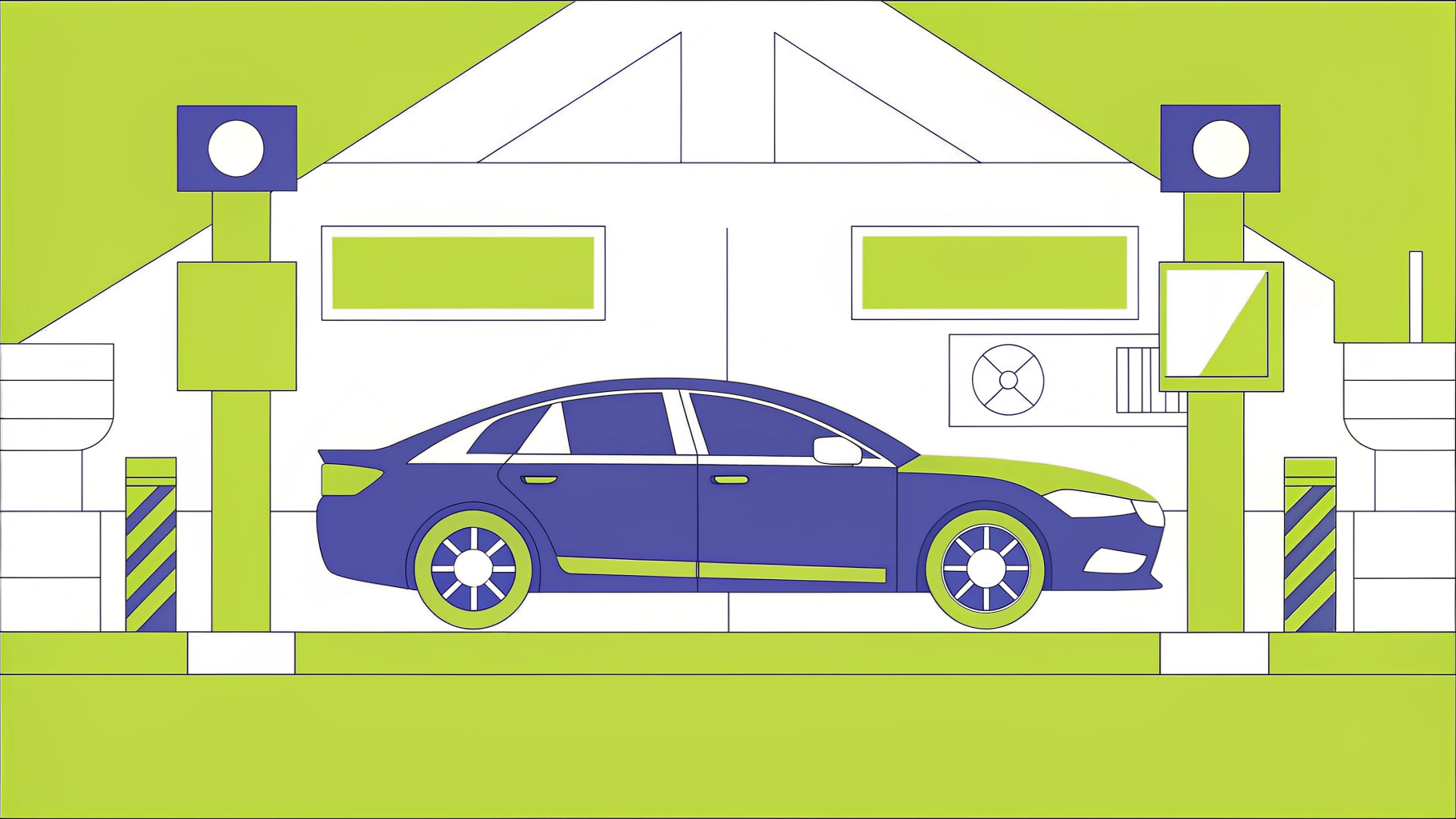Overview
This article presents ten compelling examples of car brand storytelling that can significantly inspire automotive marketing strategies. It asserts that effective storytelling—whether through emotional narratives, community engagement, or ethical practices—greatly enhances brand visibility and fosters consumer loyalty. This is evidenced by the successful campaigns of brands such as:
- Rivian
- Mazda
- Volvo
These brands serve as prime examples of how strategic storytelling can resonate with audiences and drive brand success.
Introduction
In an industry characterized by fierce competition and elusive consumer loyalty, automotive brands are increasingly embracing the art of storytelling as a means of differentiation. By crafting narratives that resonate with their audiences, these companies forge deeper connections and enhance engagement. This article delves into ten inspiring examples of car brand storytelling that not only captivate consumers but also exemplify effective marketing strategies for 2025. What insights can be gleaned from these brands, and how can they inform the creation of compelling narratives that stand out in a saturated marketplace?
Fresh Content Society: Tailored Social Media Strategies for Automotive Brands
Fresh Content Society (FCS) specializes in crafting tailored social media strategies that significantly enhance visibility for automotive companies. By executing thorough social media audits, FCS identifies both strengths and weaknesses in current strategies. This process paves the way for bespoke content that resonates with targeted audiences. Such a meticulous approach not only leverages analytics to optimize campaigns but also fosters community engagement, ensuring that companies establish meaningful connections with potential customers.
Consider Rivian’s impressive 11.4% engagement rate on social media; this statistic underscores the effectiveness of authentic content tailored to the unique cultures of various platforms. In a similar vein, Mazda’s remarkable 12.5% engagement rate on TikTok showcases the impact of real-time interaction and participation in trending topics. These car brand storytelling examples illustrate how can bolster a company’s presence in a competitive landscape.
As automotive companies navigate the intricate realm of digital marketing in 2025, the importance of customized strategies and thorough social media evaluations cannot be overstated. By focusing on organic growth and community involvement, FCS lays the groundwork for compelling storytelling that resonates with audiences and cultivates brand loyalty.
Nike: Empowering Through Emotional Automotive Narratives
Nike exemplifies the power of emotional storytelling, crafting narratives that empower and inspire audiences. Automotive manufacturers can implement comparable strategies by focusing on car brand storytelling examples that emphasize the emotional experiences of their clients. For instance, a campaign could depict a family’s road trip, capturing the joy and freedom associated with driving. Such narratives resonate with audiences and foster deeper connections; in fact, 70% of viewers who experience a strong emotional response to an advertisement are more likely to make a purchase. By tapping into emotions, automotive companies can create compelling narratives, which are exemplified in car brand storytelling examples, that drive engagement and cultivate lasting loyalty among consumers.
Successful campaigns that concentrate on the emotional journeys of clients, like Maria’s Journey, serve as car brand storytelling examples, illustrating the effectiveness of this approach by showcasing how a single mother rebuilt her credit through a dealership’s support. Moreover, companies that prioritize ethical emotional marketing practices can enhance customer loyalty and advocacy, distinguishing themselves in a competitive market. Ultimately, , as illustrated by car brand storytelling examples, are essential for automotive companies aiming to connect meaningfully with their audience.

Patagonia: Ethical Storytelling in Automotive Marketing
Patagonia stands as a paragon of environmental sustainability and ethical practices, capturing the attention of consumers and industry alike. Automotive companies can glean valuable insights from Patagonia’s approach by using car brand storytelling examples that weave ethical storytelling into their marketing strategies. For example, a company might highlight its commitment to sustainable manufacturing or impactful community initiatives. This alignment with ethical values not only resonates with consumers who prioritize sustainability but also fosters a loyal clientele.
Consider Fresh Content Society, which exemplifies this strategy effectively. With over 6 million video views and an impressive (ROAS) for clients like LINE-X, their transformative social media strategies have significantly increased engagement and driven notable revenue growth. This showcases the undeniable power of effective storytelling in solidifying a company’s presence and loyalty in today’s competitive market.
By adopting similar strategies, automotive companies can harness the potential of ethical narratives, as illustrated by various car brand storytelling examples, to not only attract consumers but also establish a lasting connection that translates into sustained business success.
Airbnb: Relatable Storytelling for Automotive Engagement
Airbnb has mastered the art of crafting relatable stories that resonate deeply with its audience. Automotive companies can harness this strategy by sharing authentic user experiences, which serve as car brand storytelling examples that celebrate the joys of driving and travel. For instance, a campaign could provide car brand storytelling examples by showcasing real-life experiences of individuals in specific vehicles, emphasizing memorable journeys and the emotions tied to them. By concentrating on these relatable narratives, automotive companies can foster a strong sense of community and connection with their audience, ultimately enhancing loyalty and engagement. This approach not only but also encourages prospective clients to envision their own experiences, thereby increasing the organization’s appeal and trustworthiness.
Notably, user-generated content (UGC) generates 4.5 times higher engagement than brand-generated content, yet only 16% of car brand storytelling examples have implemented dedicated UGC strategies. This statistic underscores the potential impact of leveraging client experiences in storytelling. Fresh Content Society has illustrated this influence through client testimonials; for example, Bob B. from Old World Industries remarked that FCS helped elevate their social media presence from zero to 500K followers across platforms. Furthermore, campaigns like Porsche’s #PorscheMoment, which garnered 1.56 million engagements, serve as car brand storytelling examples that exemplify the effectiveness of community-driven content in automotive storytelling. By nurturing emotional connections through these narratives, companies can significantly bolster customer loyalty, fostering trust and engagement over time. Successful long-term organic strategies, such as thorough audience research and consistent posting schedules, further reinforce this approach, as emphasized by Fresh Content Society’s dedication to crafting tailored strategies that resonate with audiences.

Volvo: Safety Innovations as a Storytelling Tool
Volvo has long been synonymous with safety, leveraging this core value as one of the . Similarly, automotive companies can emphasize their safety innovations in compelling marketing campaigns. For example, a company could produce a series of videos that showcase advanced safety features in real-life scenarios.
By demonstrating a strong commitment to safety, automotive companies can establish trust and credibility with consumers, which serves as one of the notable car brand storytelling examples that ultimately strengthens their brand identity. This approach not only captures attention but also builds interest, generating desire for products that prioritize consumer safety. As a result, these companies can effectively prompt action among potential buyers.

Gucci x The North Face: Luxury Brand Storytelling in Automotive
The partnership between Gucci and The North Face exemplifies how luxury labels can craft compelling narratives that resonate with a wider audience. Automotive manufacturers can leverage similar strategies by collaborating with premium outdoor gear companies, creating campaigns that highlight themes of adventure and exploration. Such collaborations not only broaden the reach of automotive companies but also provide valuable car brand storytelling examples, allowing them to engage diverse consumer segments.
By weaving narratives of craftsmanship and exclusivity into their marketing, luxury automobile manufacturers can enhance their appeal and provide car brand storytelling examples to cultivate deeper emotional connections with potential buyers. This method aligns with the , particularly in the ultra-luxury sector, where partnerships can significantly enhance narratives and increase engagement.
Moreover, considering that 62% of luxury car demand is concentrated in the Asia-Pacific region, strategic alliances in this market can prove especially advantageous. As Gary Vaynerchuk aptly notes, storytelling remains one of the most overlooked skills in business, underscoring the importance for luxury automotive companies to harness these partnerships effectively.

Dove: Authenticity in Automotive Brand Storytelling
Dove has established its identity on the foundation of authenticity, frequently highlighting real individuals and their narratives. Automotive companies can similarly benefit from this approach by integrating authentic client testimonials and experiences into their car brand storytelling examples in their marketing strategies. For instance, a campaign could focus on an individual’s journey with their vehicle, illustrating the emotional connection they have developed.
Research indicates that consumers are increasingly drawn to , with 79% of individuals asserting that they trust companies that present real customer stories. By prioritizing authenticity, vehicle manufacturers can cultivate trust and loyalty among consumers, ultimately enhancing their market presence. Effective campaigns that showcase authentic testimonials not only resonate with audiences but also boost engagement and sales, as demonstrated by car brand storytelling examples in various vehicle marketing initiatives.
Highlighting authentic experiences enables companies to connect on a deeper level, fostering a sense of community and shared values. To successfully execute this approach, vehicle manufacturers should:
- Select diverse and relatable testimonials
- Cross-promote them through various channels
- Ensure they reflect the genuine experiences of their customers
Honda: Community-Centric Storytelling in Automotive Marketing
Honda exemplifies the power of community-centric storytelling in vehicle marketing, as seen in various car brand storytelling examples. By actively engaging with local communities, Honda has successfully fostered a sense of belonging among consumers. This strategy is one that automobile companies can adopt by incorporating car brand storytelling examples through:
- Sponsoring local events
- Showcasing community initiatives in their campaigns
For instance, Fresh Content Society’s strategic partnership with Bath Planet demonstrates how [targeted social media marketing](https://freshcontentsociety.com/case-studies/bath-planet) can drive sales and enhance community engagement. Their approach, which includes conversion tracking and impactful campaigns, mirrors the effectiveness of community-focused initiatives.
Furthermore, Ford’s ‘Driving Dreams’ initiative assists underprivileged students seeking careers in automotive engineering. This initiative illustrates how companies can create a meaningful influence in their communities. Such approaches not only enhance company image but also build trust and loyalty among consumers, as seen in car brand storytelling examples that reflect their values and support their communities. Moreover, companies that integrate sustainability into their narratives enhance trust among consumers and raise sales, emphasizing the significance of local involvement in enhancing storytelling.
Ultimately, can greatly improve relatability and influence, making vehicle marketing more effective.

Starbucks: Fostering Loyalty Through Engaging Automotive Narratives
Starbucks exemplifies how captivating stories can foster consumer loyalty, a strategy that car manufacturers can effectively replicate. By crafting car brand storytelling examples that resonate with their audience’s values and experiences, automotive companies can forge a deeper emotional connection with consumers.
For instance, sharing authentic car brand storytelling examples of customers who have created lasting memories with their vehicles not only enhances engagement but also cultivates loyalty and encourages repeat business. Research shows that:
- 68% of consumers state that narratives from companies influence their purchasing decisions.
- 55% are more likely to remember a company that tells a compelling story.
- 64% of consumers seek emotional connections with companies, underscoring the potential impact of car brand storytelling examples in the automotive industry.
By prioritizing genuine narratives, automotive companies can utilize car brand storytelling examples to strengthen relationships with clients and foster enduring loyalty. Indeed, ‘75% of customers believe companies should use storytelling in their marketing,’ illustrating the significance of this approach.
This sentiment is echoed by clients of Fresh Content Society, who have witnessed substantial growth in their social media presence through . Cara K. from Coleman Powersports noted, ‘Partnering with FCS has proven to be the best decision we made for our social media presence,’ while Zach S. from Stern Pinball remarked, ‘FCS can easily stand for First Class Service based on the working relationship we have had with the team from Fresh Content Society.’ Bob B. from Old World Industries stated, ‘Fresh Content Society helped elevate our social media presence from nothing to 500K followers across platforms,’ highlighting the tangible benefits of engaging narratives in fostering customer loyalty.

Ferrari: Heritage and Performance in Automotive Storytelling
Ferrari’s storytelling is firmly anchored in its illustrious heritage and unwavering commitment to high-performance vehicles. By leveraging their rich history, vehicle manufacturers can craft compelling narratives, which serve as excellent car brand storytelling examples that resonate with consumers. For instance, companies can showcase their heritage in automotive innovation or highlight iconic models that have defined their journey. This strategy not only fortifies identity but also draws in enthusiasts who .
Ferrari exemplifies this strategy, having achieved an impressive valuation of $90 billion despite selling only 13,752 vehicles last year. This stark contrast to rivals like Porsche, which sold 310,718 vehicles yet is valued at only $43 billion, underscores the power of compelling narratives rooted in legacy. Furthermore, Volkswagen, with over 9 million vehicles sold, is valued at $40 billion less than Ferrari, further illustrating the effectiveness of Ferrari’s marketing approach.
By emphasizing exclusivity and performance, Ferrari has cultivated a dedicated community around its identity, thereby enhancing its aspirational value and market presence. The company’s selective sales strategy, requiring prospective customers to demonstrate loyalty over time to access exclusive models, not only elevates its prestige but also instills a sense of privilege among owners. Enzo Ferrari famously stated, ‘Ferrari will always deliver one car less than the market demands,’ encapsulating the philosophy of exclusivity. Car brand storytelling examples not only elevate brand perception but also foster deeper connections with consumers, making heritage an essential component of automotive marketing.

Conclusion
Crafting compelling narratives is essential for automotive brands seeking to enhance their marketing strategies. By leveraging storytelling techniques, companies can create deeper emotional connections with their audiences, ultimately driving engagement and loyalty. The examples discussed illustrate that whether through emotional narratives, ethical storytelling, or community-centric approaches, the power of storytelling remains a pivotal tool in the automotive industry.
Key insights from the article highlight the effectiveness of tailored social media strategies, emotional marketing, and authenticity in fostering brand loyalty. Brands like Nike and Patagonia demonstrate how emotional and ethical narratives can resonate profoundly with consumers. In contrast, companies like Honda and Starbucks exemplify the importance of community engagement and relatable storytelling. Each example serves as a testament to the diverse ways automotive brands can connect with their target audiences and cultivate lasting relationships.
In an increasingly competitive landscape, the significance of storytelling cannot be overstated. Automotive companies are encouraged to embrace these strategies, harnessing the power of narratives to differentiate themselves and create meaningful connections with consumers. By prioritizing storytelling in their marketing efforts, brands can enhance their visibility and foster a sense of community and loyalty that drives long-term success.
Frequently Asked Questions
What is Fresh Content Society (FCS) and what do they specialize in?
Fresh Content Society (FCS) specializes in crafting tailored social media strategies that enhance visibility for automotive companies through thorough social media audits.
How does FCS improve social media strategies for automotive brands?
FCS conducts social media audits to identify strengths and weaknesses in current strategies, leading to the creation of bespoke content that resonates with targeted audiences and fosters community engagement.
Can you provide examples of successful engagement rates in automotive social media?
Rivian has an engagement rate of 11.4% on social media, while Mazda boasts a 12.5% engagement rate on TikTok, showcasing the effectiveness of authentic and platform-specific content.
Why is emotional storytelling important for automotive brands?
Emotional storytelling helps automotive manufacturers connect with audiences by emphasizing emotional experiences, leading to deeper connections and increased likelihood of purchase; 70% of viewers who experience strong emotions from an advertisement are more likely to buy.
What are some examples of emotional narratives in automotive marketing?
Campaigns like Maria’s Journey, which showcases a single mother rebuilding her credit through a dealership’s support, illustrate how focusing on emotional journeys can drive engagement and loyalty among consumers.
How can automotive companies incorporate ethical storytelling into their marketing?
Automotive companies can adopt ethical storytelling by highlighting commitments to sustainable manufacturing or community initiatives, resonating with consumers who prioritize sustainability and fostering loyalty.
What results have FCS achieved for their clients?
FCS has achieved over 6 million video views and a 20X return on ad spend (ROAS) for clients like LINE-X, demonstrating the effectiveness of their transformative social media strategies in increasing engagement and revenue growth.
What is the overall importance of tailored social media strategies for automotive brands in 2025?
Customized strategies and thorough social media evaluations are crucial for automotive companies in 2025 to focus on organic growth, community involvement, and compelling storytelling that resonates with audiences and builds brand loyalty.

